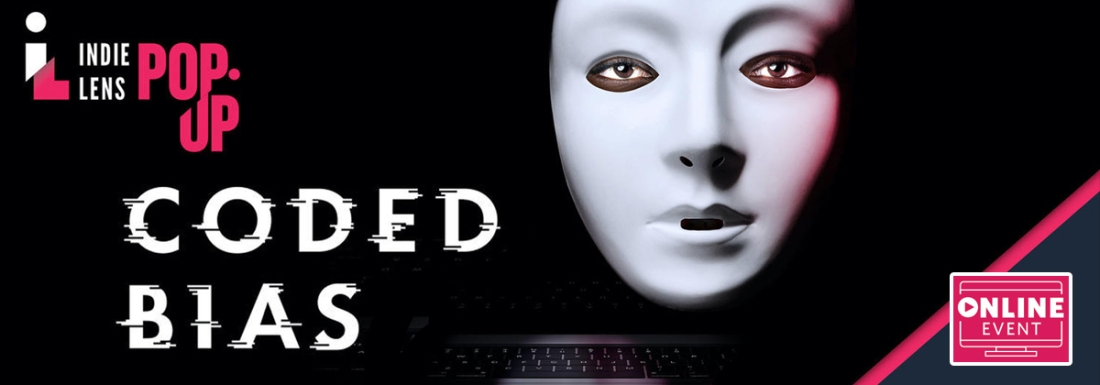While conducting research on facial recognition technology at the MIT Media Lab, Ghanaian-born Joy Buolamwini was startled to discover that it failed to detect women or dark-skinned faces with accuracy. Machine-learning algorithms designed to eliminate bias were only as unbiased as the humans and historical data behind them.
The documentary Coded Bias chronicles the dramatic journey that followed. Buolamwini went public with her findings and launched a crusade for transparency and accountability – the technology is increasingly used in everything from facial scanning for policing and surveillance to automated HR systems. In testimony before Congress, she pushed for landmark legislation governing facial recognition in the United States.
Coded Bias, and the question of how to protect individuals’ civil liberties in the face of artificial intelligence, are spotlighted in the latest online installment of the Indie Lens Pop-Up cinema initiative. The 90-minute film is screened, and Buolamwini headlines a live-chat discussion that follows.
The online event is co-presented by the Algorithmic Justice League, Arcus Center for Social Justice Leadership at Kalamazoo College, Bud Werner Memorial Library, City of Mesa, Data & Society, Durango Public Library, Georgia Public Broadcasting, Global Peace Film Festival, Hawai‘i Women in Filmmaking, Kellogg-Hubbard Library, Panhandle PBS/KACV, PBS Hawai‘i, Red River Theatres, Rollins College, Tillotson Center, and Yale Film Archive. Support comes from ITVS, the Corporation for Public Broadcasting, and PBS.
